Tran Nguyen Ngoc Nhu
Ho Chi Minh City, Vietnam
Physicians have long held a high position in Vietnamese society. Among many who have improved the health of their local communities, five physicians have notably contributed to science and medicine in Vietnam and beyond.
Master Tue Tinh (1330 – ?)
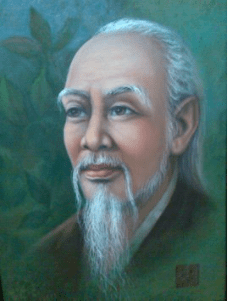
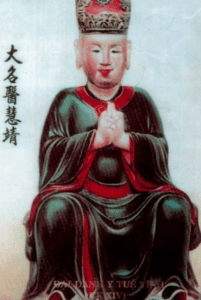
A drawing of Master Tue Tinh. It was made when Vietnam still used ancient Vietnamese with characters similar to Chinese. Unknown original. Source
Master Tue Tinh’s real name was Nguyen Ba Tinh. A native of Nghia Phu village in Cam Giang district (Hai Duong province), Tue Tinh is considered to be the founder of Vietnamese traditional and herbal medicine. He authored two well-known books, Southern medicine of miracles and Hong Nghia Giac Tu Y Thu, and was the first person to promote the idea of “Southern medicine to cure the Vietnamese.” Orphaned at the age of six, Nguyen Ba Tinh was raised and educated by the monks of Hai Trieu and Giao Thuy pagodas. With talent and hard work, at the age of twenty-two he studied and passed Thai under King Tran Du Tong. While in the monastery, he also studied herbal medicine and learned to treat diseases. In 1385, at the age of fifty-five, Tue Tinh was taken to the Ming court to pay tribute. While in China, he became famous for his remedies and was awarded the title of Great Medicine Zen Master by King Minh. He died in China, but the year is unknown.
Hai Thuong Lan Ong
Hai Thuong Lan Ong (1720–1791) was born Le Huu Trac in Van Xa village, Lieu Xa village, Duong Hao district, Thuong Hong district, Hai Duong province. His grandfather, uncles, and aunts all received doctorates and served as mandarins in the court. His father had won the Third Dynasty Doctorate and served as Thi Lang of the Ministry of Public Works under Le Du Dynasty Tong. Since he was the seventh son, he was also known as Uncle Chieu Seven. A great medicine man and cultural figure, he wrote the famous Lan Ong Tam Linh or Hai Thuong y Tong Tam Linh, a many-volume tome covering medicine, pharmacy, and nutrition. Hai Thuong Lan Ong is revered as the great physician of Vietnam.
Ho Dac Di
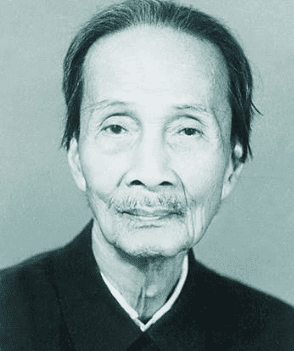
Ho Dac Di (1900-1984) studied medicine in France (1918-1932) and became a resident doctor there. He was a surgeon at Tenon Hospital before returning to Vietnam. In his graduate thesis, Ho Dac Di proposed a method of gastrectomy (gastro-duodenal shunt) to treat pyloric stenosis caused by stomach ulcers. His procedure replaced previous methods and was in use for several decades. With his many publications, he was elected as the first Vietnamese professor by the all-French council of professors.
He was also a member of the National Assembly from the second to the fifth term, rector of Hanoi Medical University, general director of the Vietnam University of Education, director of the Department of Education and Training, and a member and chairman of many committees. Professor Ho Dac Di was awarded the First-Class Independence Medal, First Class and Second-Class Resistance Order, First Class and Second Class Labor Order, Medal for the Young Generation, National Emulation Soldier in 1952 and 1956, and the Ho Chi Minh Prize. He died on June 25, 1984.
Pham Ngoc Thach
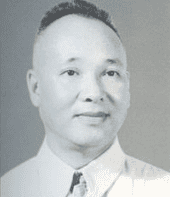
Pham Ngoc Thach (1909-1968) was born in Quy Nhon, Binh Dinh province. In 1928 he began his studies at Hanoi Medical University, and in 1934 graduated as a Doctor of Medicine in France. After two years, he returned to Saigon and opened a private clinic and hospital specializing in the treatment of tuberculosis and lung diseases.
Pham Ngoc Thach was a well-known intellectual among the elite in Saigon. He was from a noble royal family, respected by the French and Japanese, and joined the revolution very early. He was the founder of the Young Pioneers, a powerful group that formed the core of the mass movement to seize power during the August Revolution. He was the first President of the Vietnam Youth Union and the first Minister of Health of independent Vietnam (Provisional Government of the Democratic Republic of Vietnam, September 1945–January 1946). From 1954, he was Deputy Minister, Secretary of the Party Union (1954-1958), then Minister of Health (1958-1968). He built a people’s healthcare system in the North.
He also contributed greatly to medicine in the South. In 1955, he gathered South Vietnamese nurses and pharmacists, became a pharmacist himself, and went to the battlefield. He is the founder of the Central Anti-TB Institute and directed many research projects on tuberculosis prevention and treatment as well as many other lung diseases, which laid the foundation for this specialty in Vietnam and a health network of grassroots organizations. Doctor Pham Ngoc Thach was awarded the first Labor Hero of the Health Sector award in 1958 at the first National Congress of Heroes Emulation Festival, and was posthumously awarded the Ho Chi Minh Prize in 1996.
Ton That Tung
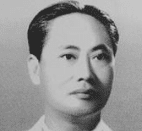
Ton That Tung (1912-1982) was born in Thanh Hoa and grew up in Hue. In 1932 he began studies at the School of Medicine and Pharmacy, then in 1935 was recruited with ten other students to work at Phu Doan Hospital. He was the only person also allowed to work in the surgical department of the School of Medicine and Pharmacy, that is, the current Vietnam-Germany Hospital.
With rudimentary instruments, he carefully dissected the structure of the liver. On that basis, he wrote and successfully defended his thesis titled “How to divide blood vessels of the liver.” For this thesis, he was awarded the Silver Medal of the University of Paris. In the 1960s, he successfully researched a method of planned liver resection, now called the “dry liver surgery method” or the “Ton That Tung method.” After the success of the August Revolution, Ton That Tung was one of the first intellectuals who enthusiastically built the Medical University of the Democratic Republic of Vietnam. In 1947, he was appointed by the government to hold the position of Deputy Minister of Health. After the restoration of peace, he was appointed as the director of the Vietnam-Germany Friendship Hospital and the head of the Department of Foreign Affairs, Hanoi Medical University. In 1958 he successfully performed the first heart surgery in Vietnam, and in 1959 established the departments of cranial surgery and pediatric surgery. In 1960, he was the first to successfully perform liver surgery by the Vietnamese method, and in 1965 performed the first heart surgery in Vietnam using an artificial heart-lung machine.
In 1977, he was awarded the International Medal of Surgery by the Paris Academy of Surgeons named after Lannelongue. This is a prestigious award for outstanding surgeons, and is only awarded every five years. He is one of twelve people in the world and the only person in Vietnam to have received this distinction. Professor Ton That Tung also received many accolades in Vietnam, including the title of Labor Hero, twice the First-Class Labor Medal, First Class Soldier Medal, Third Class Resistance Order, and was posthumously awarded the Ho Chi Minh Order.
TRAN NGUYEN NGOC NHU is currently a senior university student majoring in Internal Business Studies. Despite studying in the business major, Nhu shows significant interests in the medicine industry due to its valuable contribution to society and aggressive development.

Leave a Reply